July 2017 Research, Science and Knowledge
Read the articles selected in July 2017
Trends Shaping Education Spotlight 11
Source: http://www.oecd.org
The mobility of people is a powerful lever for human and economic development when the access to a quality education is ensured. Education must adapt teaching to the diversity and the educational needs of all students, and plays an important role in developing intercultural dialogue and open-mindedness.
Academic writing: how to stay afloat
by Helen Sword
Source: Times Higher Education, 20 July
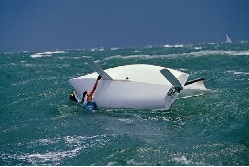
Academic writing is the result of a varied set of attitudes and discipline, anyway rather of improvisation than of formal training. Universities don’t support the professional development of academics as research writers and teachers, nurturing a way of thinking based on the status quo.
When the Syrian war ends, what is the plan for HE?
by Raniero Chelli & Marco di Donato
Source: http://www.universityworldnews.com, 14 July
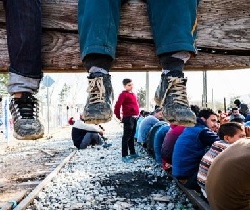
The international community is considering the problem of Syrian reconstruction at the end of the war. The heavy humanitarian situation of refugees risks producing an under-educated generation. Several initiatives aim to sustain instruction as the starting point of Syrian renaissance.
Read more:
http://www.universityworldnews.com/article.php?story=20170711102338723
SIDA “La science a avancé plus vite que la societé”
Source: Libération, 24 July
Although the important progress in its treatment and prevention, AIDS is still a very stigmatized illness. The scientific advancement doesn’t correspond with social progress, and the lack of a social consensus affects research funding. But this is not the time to let down our attention.
More than a third of female graduates “dramatically underestimate their worth”
by Josie Cox
Source: The Independent, 21 July
After a survey of 5000 graduates in the UK, a third of female postgraduates underestimate their earning power compared to their male peers, and actually gender pay gap is so persistent into the working career that the companies employing more than 250 people will have to give account of it on their websites.
Communication from the Commission to the European Parliament, the Council, the European Economic and Social Committee of the Regions
Source: European Commission
In the next years half of all jobs will require high-level qualifications. To face the challenges of its future Europe should have a 40% of its young population with a tertiary education qualification by 2020. This agenda provides a strategic framework for EU and Member States modernization reforms in higher education.
Eua’s response to the renewed Eu Agenda for Higher Education
Source: http://eua.be, July 2017
In response to the European Commission's Agenda, European University Association especially considers the point of skills’ mismatches, to be tackled with innovative curricula and the development of digital and lifelong learning. Eua wishes for a greater recognition of humanities and rare disciplines.
Google accused of paying millions for research backing
by Brendan O’Malley
Source: http://www.universityworldnews.com/, 15 July
After a non-profit watchdog’s report, Google has funded academic research, to produce papers that try to sway opinion and public policy supporting its interests in antitrust, privacy, net neutrality, search neutrality, patents and copyright.
Read more:
http://www.universityworldnews.com/article.php?story=20170715062035663
England embraces the delusion of free tuition
by Arianede Gayardon
Source: http://www.universityworldnews.com, 14 July
Free tuition is not a panacea for all students from low economic backgrounds. Studies have shown that living costs are a barrier more important than tuition fee, and that a free higher education system would put at risk the quality of education, widening the social gaps.
Read more:
http://www.universityworldnews.com/article.php?story=20170712153136573
Adaptive problem solving
by Samuel Greiff, Katharina Scheiter, Ronny Scherer, Francesca Borgonovi, Ann Britt, Art Graesser, Muneo Kitajima, Jean-François Rouet
Source: http://www.oecd.org/
In sight of the 2nd cycle of the OECD Survey of Adult Skills(PIAAC), this report defines problem solving as the ability to solve non-routine situations with nonrepetitive schemes. This is the fundamental skill in the 21st century, that can keep pace with the fast-changing digital technologies and communication media.
Academics “often don’t trust other researchers”
by John Elmes
Source: Times Higher Education, 10 July
After the report Research data infrastructures in the UK academics don’t trust in accessible research data, and many don’t publish their own, fearing that their work might be abused or misinterpreted. That landscape denounces the lack of responsibilities for ensuring basic quality standards of open data.
Excellence, synergies and alignment: LamyGroup sketches our future EU research and innovation programme
Source: http://www.eua.be/, 7 July
This report is Eua’s response to the Fab-Lab-App report of the High- Level Group. Eua confirms the importance of doubling EU research and innovation funding, and of a more efficient use of resources through a simplified programme, highlighting the cruciality of the future Framework Programme for the European society.
Do countries pay their teachers enough?
by Dirk Van Damme
Source: http://www.oecd.org, 7 July
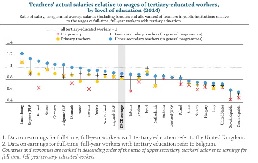
Policies that intend to improve the quality of the education system can’t succeed without increasing the pay of teachers. But in the most Oecd countries, teacher’s salaries lose out to those of other tertiary educated professionals.
Read more:
http://oecdeducationtoday.blogspot.it/2017/07/do-countries-pay-their-teachers-enough.html
Why it might be a good time to start a career in science
by Maggie Kuo
Source: Science, 5 June
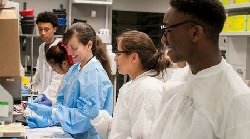
After a new study, the number of young basic scientists has been going down since 1990, because the more of the public funding for science has been assigned to senior scientists. But according to Michael Levitt, this could be a good time for young researchers, since scientists from baby boom generation are retiring.
Read more:
http://www.sciencemag.org/careers/2017/06/why-it-might-be-good-time-start-career-science
Kill the myth of the miracle machine
by Daniel Sarewitz
Source: Nature, 11 July
The old and bizarre definition of science as a knowledge without practical applications and social concerns decreases its legitimation and accountability and acquiesces the funding cuts. Exceptional science is not the product of a miracle, but the result of well- functioning institutions.
Consulta l’articolo:
https://www.nature.com/news/kill-the-myth-of-the-miracle-machine-1.22283
Complementary note to EUA’s membership consultation and recommendations for the future of the Erasmus+programme.
Source: http://www.eua.be
A few months ago the European Commission launched an online questionnaire for an EUA’s public consultation on the mid-term evaluation of the Erasmus + Programme. This paper presents a series of Recommendations EUA addresses to the EC.
China: new “champions” for globalisation” could claim US crown
by Marguerite Dennis
Source: Times Higher Education, 26 June

American international leadership in higher education may give way to Chinese supremacy, benefiting from a political context of economical openness. With its investments in its commercial hubs and its several important universities, the global champion of globalisation is the future educational power.
Towards Full Open Access in 2020
Source: http://www.eua.be/, 29 June
Opening access to research outcomes promotes a knowledge exchange system where the academia regains its scientific sovereignty, given the spillover effects of knowledge transfer in the economy and society. Incentive and rewards for researchers are required to ensure a swifter transition to OA.
Enhancing employability and skills to meet labour market needs in Italy
by Paula Garda
Source: http://www.oecd.org , 30 June
After this Oecd report, with the Jobs Act and Good School reforms, Italy is in the right direction to tackle the high unemployment rates that especially affect the young and long–term unemployed through a flexicurity approach aimed at increasing the skills of Italian work force .
Are countries ready to invest in early childhood education?
by Dirk Van Damme
Source: http://www.oecd.org, 28 June
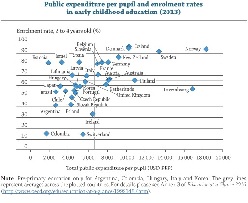
The funding mechanism for early childhood education is extremely complicated and in many OECD countries it is not a favorable condition for expanding preprimary education. A high-quality early childhood education can compensate the social gaps in learning and is critical for success in life.
Read more:
http://oecdeducationtoday.blogspot.it/2017/06/are-countries-ready-to-invest-in-early.html
Continent-wide space sciences initiative gathers support
by Wagdy Sawahel
Source: http://www.universityworldnews.com, 30 June
A new project intends to leverage Africa’s geological record and its geographic location to develop the field of planetary and space sciences in the continent. This initiative, which will foster greater use of open access data and publications could inspire young generations to study STEM subjects .
Read more:
http://www.universityworldnews.com/article.php?story=20170630082754163
LAB-FAB-APP
Investing in the European future we want
Source: http://ec.europa.eu , 3 July
Europe is a global scientific powerhouse, but it fails to capitalize enough the intangible assets it has. Research and innovation are to be considered policy priorities for national investments as well. Doubling the budget of the post- Horizon 2020 and opening to associate partners of similar excellence is the key to success.
Info
- Pubblicato il : 19/12/2017 Modificato il : 04/04/2019
Allegati
- Underestimated female graduates pdf
- La science a avancé plus vite pdf
- Academic writing pdf
- Trends Shaping Education Spotlight 11 pdf
- Adaptive problem solving pdf
- Euas response to the new Agenda for higher education pdf
- Communication from the European Commission pdf
- Eua s response pdf
- Academics don t trust other researchers pdf
- Investing in the European future pdf
- Enhancing employability in Italy pdf
- Towards Open Access pdf
- China new champion for globalisation pdf
- Reconmmendations to the European Commission pdf

